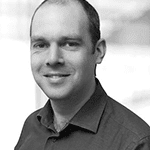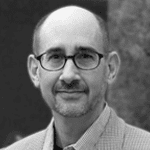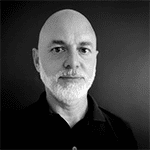Watch this event where we heard from global experts on the latest research and thinking around resilient cities. We explored recent advances in microclimate simulation, lessons learned from city-scale modeling, and how integrating an ecosystem of design tools on energy, comfort, GIS, and carbon can give designers an advantage in combating the catastrophic consequences of climate change.
A future planet is one in which 80% of the global population will live in densely packed cities. Global megatrends including urbanization and extreme climate change will place unprecedented demands on our buildings, cities, and infrastructure.
According to the World Business Council for Sustainable Development, every week, around the world, we build new floor space corresponding to a city the size of Paris in France.
- This uses 40% of global natural resources
- Creates 40% of all waste streams
- Releases close to 40% of all global energy-related greenhouse gas (GHG) emissions into the atmosphere.
Welcome and Introduction
Dr. Naghman Khan, Product Marketing at SimScale
Designing for Extreme Environments
Xavier De Kestelier, Principal and Head of Design at Hassell Studio
Hassell Studio has been at the forefront of extreme risk-based design. Xavier will show strategies for designing in extreme environments, from refugee camps to cities under extreme climate risk, and even a new space architecture for buildings on the moon.
Designing Better Cities—Impact of Urban Heat Island and Climate Change
Professor Maria Kolokotroni, Associate Dean at Brunel University, United Kingdom
An overview of the impacts of urban heat islands and climate change on buildings and cities including adaptation strategies that architects and engineers can use to design better cities.
Product Launch – A New Digital Wind Tunnel App for Architects
Jeroen Janssen, Environmental Design at Thornton Tomasetti
Richard Szoeke-Schuller, Product Manager for Architecture, Engineering and Construction at SimScale
The SimScale API has enabled designers to develop bespoke analysis tools for early stage design. Jeroen Janssen, Associate Director at Thornton Tomasetti leads the CORE Studio R&D team. Richard and Jeroen will share insights on how TT developed an in-house digital wind tunnel tool by integrating SimScale with Grasshopper to accelerate the building design process and how architects around the world can start using the new app.
How to Achieve a Net Zero City
Langdon Morris, Co-author of Net Zero City
Synopsis on the research and findings of the Net Zero City book.
Environment Design Best Practices from Zaha Hadid
Carlos Bausa Martinez, Head of Environmental Design and Sustainability at Zaha Hadid Architects
Carlos will share key learnings and environmental design techniques and tools they have developed at Zaha Hadid for designing some of the most prestigious and ground breaking projects globally.
Environmental and Human Centric Design at AtkinsRéalis
Dr. Avgousta Stanitsa, Senior Design Researcher at AtkinsRéalis
Davide Minniti, Associate Director at AtkinsRéalis
AtkinsRéalis have developed an ecosystem of design tools in-house to leverage the vast expertise they have in environmental and human-centric design. Avgousta and Davide will share how they are using cloud technology to push the boundaries of sustainable design at AtkinsRéalis and how the urban design team has been implementing these new tools on live projects.
A Novel Microclimate Analysis App
Elias Anka, Lead Environmental Designer at KPF
KPF has developed a novel Rhino app that uses the SimScale API for microclimate analysis. Elias will show attendees how they developed the new app, and the organizational learnings of deploying complex design tools to over 100 architects in multiple offices.
Creating and Operating Metaverse Applications in the Construction Industry
Cobus Bothma, Design Platform Specialist at NVIDIA Omniverse
The metaverse—the 3D internet—is delivering enormous opportunities for everyone. From architects building content across multiple 3D tools, developers building AI trained in virtual worlds, or enterprises building digital twin simulations of their buildings and cities, metaverse applications are here, and everywhere. Cobus will demonstrate the Omniverse platform live.
Panel Session: Act Now! What Do Architects and Engineers Need to Design Cities Best Adapted to Climate Change?
Each panel member will answer questions and share their thoughts about what we need to do in order to design cities that are best adapted to climate change. The panel will discuss if we have the right design & engineering tools and give their perspective on the biggest risks and challenges facing design firms.

Dr. Naghman Khan,
Product Marketing at SimScale
Dr. Naghman Khan has a PhD in building simulation and is a founding member of the CIBSE Building Simulation Group and co-author of CIBSE AM11: Building Performance Modeling. He works with SimScale and technology providers to rapidly accelerate digital transformation for a sustainable built environment and is a published researcher on energy efficiency, microclimate simulation and sustainable buildings.

Xavier De Kestelier,
Principal and Head of Design at Hassell Studio
Xavier is a global head of design and leader of the design technology and innovation team at Hassell Studio. Both an architect and technologist, Xavier harnesses technology to create more powerful, future-focused sustainable design solutions. That means he’s responsible for overseeing work in computational design, building information modeling, visualization, and VR. Over the past decade he’s forged a reputation as an industry leader in the exploration and adoption of parametric design and digital fabrication. Most recently, he was behind the concept for a ‘home’ on Mars—part of NASA’s 3D Printed Habitat Challenge.

Professor Maria Kolokotroni,
Associate Dean at Brunel University London, UK
Maria is considered a global expert on the urban heat island phenomenon and the corresponding adaptation and cooling strategies needed for buildings and cities. Maria has published widely on the subject of outdoor thermal comfort and climate-related risks to the built environment.

Jeroen Janssen,
Environmental Design at Thornton Tomasetti
Jeroen is an Associate Director and is leading the CORE studio team in London. CORE is Thornton Tomasetti’s Research and Development incubator, enabling collaboration with project teams and industry colleagues to drive change and innovation. Jeroen particularly focuses on the design of microclimates for urban spaces. During the early stages of a design, in-house developed digital models of wind simulations and solar and thermal radiation are used to analyse complex urban scenarios on master planning scale or at the level of an individual development, thus ensuring comfortable spaces from the outset of the architectural design process.

Richard Szoeke-Schuller,
Product Manager for AEC at SimScale
Richard is driving technology development at SimScale in the AEC industry, focusing on microclimate applications for simulating and designing buildings and cities. Richard has extensive experience working with customers globally to apply microclimate analysis on large scale, city-wide projects that need wind comfort, outdoor thermal comfort, and greening strategies developed at the earliest stages of design. Recent projects include working with computational designers and software developers to develop specialist microclimate apps using the SimScale API.

Langdon Morris,
Co-author of Net Zero City
Langdon is a globally renowned teacher, consultant, and keynote speaker on innovation and strategy. He leads the innovation consulting practice at InnovationLabs, supporting companies, governments, and humanitarian organizations worldwide. He has written many books on all facets of innovation management and business strategy which are widely used in practice and as university textbooks, including The Innovation Master Plan which was described here. Recently he created the world’s most complete online course in innovation, the 25-hour Innovation Mastery program.

Carlos Bausa Martinez,
Head of Environmental Design and Sustainability at Zaha Hadid Architects
Carlos Bausa Martinez is Associate Sustainability Team Lead at Zaha Hadid Architects. He is a Spanish Architect based in London, Credited Energy Assessor, Commercial Drone Pilot and specialist in computational design and environmental simulation. He became Master in Advanced Architecture at IAAC Barcelona in 2014, and spent 5 years at Foster + Partners as Environmental Design Analyst in the Specialist Modeling Group, and later on moved to Zaha Hadid Architects to start building an in house Sustainability Team for the studio. Since 2019 he has been working on the development of the sustainability agenda of the company with his in-house ZHA team, dedicated to the definition of new design workflows, linking environmental simulation and geometry modeling for exploring how geometries can be defined to lower building carbon footprint and cope passively with local weather conditions.

Avgousta Stanitsa,
Senior Design Researcher at AtkinsRéalis
Avgousta Stanitsa is a qualified architect, working within AtkinsRéalis’ Building Design Research & Innovation team, focusing on environmental design and digital innovation. Avgousta is also a PhD candidate in Data, Risk, and Environmental Analytical Methods at Cranfield University, exploring how design impacts human experiences and how novel approaches could be leveraged to inform decision-making processes.

Davide Minniti,
Associate Director at AtkinsRéalis
Davide leads the London International Masterplanning team in AtkinsRéalis. He is a chartered Urbanist with 18 years’ experience in strategic and detailed Masterplanning for public and private sector clients. Davide’s expertise includes coordination of multidisciplinary teams to deliver sustainable city plans, climate adaptation strategies, urban extensions, urban regenerations, Smart City strategies, Transit Oriented Developments and design codes and guidelines, in between others. He has led a variety of urban development assignments including climate adaptation studies for the European Investment Bank (EIB) in Athens and Smart Cities assignments (FCO, EBRD).

Elias Anka,
Lead Environmental Designer at KPF
As KPF’s Sustainable Design Lead, Elias has a focus on net-zero carbon strategies and delivering high-performance building design that goes beyond industry standards. He collaborates with design teams at different stages of the process to set the environmental agenda of a project and validate it with qualitative and quantitative performance data and the use of parametric modeling and iterative analysis. Before joining KPF, Elias obtained a Master’s degree in advanced studies in Architecture from the Beaux-Arts University of Beirut – ALBA. He is currently licensed by the Order of Engineers and Architects in Lebanon. He also holds a Master’s degree in Sustainable Environmental Design from the Architectural Association in London.

Cobus Bothma,
Design Platform Specialist at NVIDIA Omniverse
Cobus Bothma is a passionate designer and technologist working at NVIDIA on the Omniverse Platform for the AECO industries. With a background in Product and Architectural design and visualization, he specializes in design computation, simulation, and the democratization of design and visualization computation. Prior to NVIDIA, he was the Director of Applied Research at Kohn Pedersen Fox, a global architectural firm. His work included the design of large-scale architectural projects, developing design functions, and progressing technology adoption for advancing the design and construction process.







